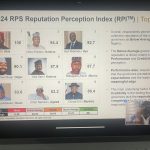The prevailing foreign exchange shortage is beginning to have a significant impact on Nigerian students studying abroad, as evidenced by the recent removal of three students from the enrollment list at Swansea University in the United Kingdom (UK) due to late fee payment.
Omolade Olaitan, Emmanuel Okohoboh, and Paulette Ojogun, all Nigerian students, encountered this issue when their school fees were paid just a few hours beyond the expected deadline.
Consequently, the university authorities informed them that they must either return to Nigeria or forfeit their admission due to the tardiness of their payment.
The students have attributed the delay in their fee payment to the cash crunch that affected Nigeria earlier in 2023. Despite their explanations, Swansea University has remained unyielding, retaining the N3.8 million (4000 pounds) in school fees and insisting that the affected students leave the institution.
Omolade Olaitan, one of the students impacted, shared that her payment was made on March 29, two days after the March 27 deadline. She recounted, “On March 29, I received an email from income tuition confirming my payment. However, because the payment arrived after the deadline, they informed me that I could no longer enroll and instructed me to return to my home country.”
Emmanuel Okohoboh, another student affected by this situation, who had been admitted to pursue a master’s degree in Business Management, expressed his frustration after selling parcels of land to raise the necessary funds for his fees. He stated, “Their lack of fairness and compassion, and their absence of empathy, are evident. Selling my father’s land and a portion of my own property to afford studying at Swansea University, only to confront this ordeal, has been an emotionally draining and demoralizing experience for me.”
Similarly, Paulette Ojogun, a student enrolled in a marketing management program, found herself in a similar predicament due to a late fee payment. In her words, “I am grateful to be here and pursuing my studies. Why should you deny me this opportunity simply because my school fees were received late? Despite my efforts to explain the situation through emails, they have not been receptive to my plea.”
Swansea University expressed regret over the unfortunate circumstances but maintained that adhering to UKVI (UK Visas and Immigration) regulations was imperative.
Meanwhile, the Central Bank of Nigeria (CBN) has refuted the notion that the devaluation of the naira is solely a result of market forces. Instead, it attributes the decline to speculative activities.
Folashodun Shonubi, the acting governor of the CBN, addressed this issue in a broadcast on August 14, 2023, affirming the government’s commitment to safeguarding the naira. “I am skeptical that the shifts occurring in the parallel market are purely driven by economic principles of supply and demand. Rather, I am convinced that speculative demand is a major factor,” he stated.
Established in 2001, Business Day is a daily business newspaper headquartered in Lagos, Nigeria, with a bureau also located in Accra, Ghana. It boasts both daily and Sunday editions and is widely circulated in Nigeria and Ghana.













